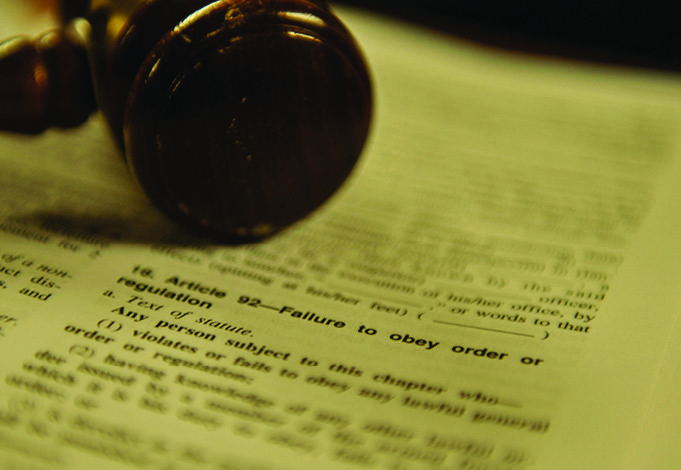By Donald C. Collins
Association bylaws are a road map to how an association is run, and a means for setting association standards and practices. That dual role of road map and means of setting standards makes the bylaws an all-encompassing document.
The broad scope makes execution difficult, and it leads to a lot of questions. Here are five frequently raised issues.
1. How Should Members Be Disciplined?
Association bylaws should set out association requirements, require notice of violations, provide for hearings where facts may be in dispute and provide for an appeal — preferably before some panel other than the one that ruled on the initial charges. Also, associations need to make sure that they disseminate the bylaws. Mere website posting or “making them available upon request” isn’t sufficient.
Most associations can identify the vital matters that will go in their bylaws such as meetings, training, testing and meeting professional standards of comportment. A questionnaire will help associations get bylaws right by forcing the association to ask questions such as: What meetings do we have? How long do you need to be in the meeting to have attended it? What excuses do we take? Do we have a panel to address excuses that we didn’t think of in advance? Do we fine if a member misses a meeting? What do we do if members miss too many meetings? And what constitutes too many misses? Associations should develop a questionnaire to address tests, training, professionalism and other areas of their bylaws. Answering all possible questions helps refine what we write in our bylaws.
Professionalism is the most difficult standard. There simply is no way to envision every way that a member can breach professional standards. But bylaws do not have to be laundry lists of every possible wrong. Associations are contractually obligated to enforce the NFHS rules or some other set of rules. The NFHS rules set out a code of ethics. Associations should link their professional standards to that code.
Finally, associations struggle with unprovable assertions — such as the classic, “The coach smelled alcohol on the official.” A partner interview helps on such matters, but ultimately such assertions do have an impact on professionalism. The issue isn’t whether one consumed alcohol, although one might have. The issue is that professionals don’t smell as if they haven’t washed (unless the odor is caused by an illness — in which case disability laws might apply), they don’t smell like alcohol and their clothes are reasonably clean.
2. How Do You Ensure the Right Members Are Assigned to the Right Games?
Bylaws should address the association rating system. That encompasses who evaluates, how they evaluate and how to appeal one’s rating (which is highly advisable). Bylaws need to provide a means to link ratings to assignments, and to ensure that assigner discretion does not override the ratings. Associations should speak to their assigner about incorporating practical assigner concerns into the bylaws so the assigner is empowered to address matters such as availability, missed games and other factors that would reasonably lead an assigner to deviate from a rating system.
3. What Is Involved in the Association Electing and Replacing Board Members?
Association bylaws must set out how the board of directors is selected, and what the board members’ terms are. Most associations do that. However, many associations don’t follow their bylaws. That leads to board disputes that often appear to be a battle between that which is written versus that which is expedient. The best way to resolve the problem is to account for as many possibilities in advance through either a questionnaire or by looking at the association’s history and bringing the bylaws in line with the actual practices.
Associations can also prevent problems by addressing issues concerning the replacement of board members. Bylaws should address board member misconduct, board members who miss too many meetings and other board member problems. The bylaws should set out the procedures for resolving those problems, removing board members and installing replacement board members.
4. Does Communication Reflect Current Practices?
The world has changed, and our bylaws need to account for the changes. Associations must review their bylaws to make sure that their sections on communication, meeting notice, assignments and other matters account for their current practices. That is a simple review. Associations need to find every section of their bylaws that refer to using the mail for notice, and make a determination as to whether the mail notice should be replaced or supplemented with electronic notice. That does have a legal impact, interestingly, as associations who are using electronic notification where their bylaws refer to mail may lose a challenge from a member who claims improper notice.
The new electronic environment also requires associations to account for social media. Association bylaws should require members to adhere to professional standards already. However, a good social media policy can assist members in responsible social media navigation. That is a good time to borrow from others: The NASO Social Media Guidelines provide assistance, and associations can and should either reference those guidelines or use them to develop their own social media guidelines.
5. Do You Require Insurance?
Associations should require members to have liability insurance. Most associations are aware that members need liability insurance, but too often associations fail to require it in their bylaws. Some associations contend that their members already have insurance or their members belong to other entities that will cover them. That is a dangerous way to live. Association bylaws should require that members have insurance, and that the association and board have insurance. Associations should also verify that members meet the insurance mandate. There’s too much at stake to take that lightly.
Those are five common bylaw issues, but they’re not the only issues. Associations should constantly review bylaws against their actual practices, and periodically review their practices so they can stay up to date before problems arise. Maintaining good bylaws is a practice that never ends.
Donald C. Collins is a retired executive director of the San Francisco Section of the California Interscholastic Federation. He is a longtime basketball official and lawyer.
This article is for informational purposes and is not legal advice.
What's Your Call? Leave a Comment:
Note: This article is archival in nature. Rules, interpretations, mechanics, philosophies and other information may or may not be correct for the current year.
This article is the copyright of ©Referee Enterprises, Inc., and may not be republished in whole or in part online, in print or in any capacity without expressed written permission from Referee. The article is made available for educational use by individuals.
















